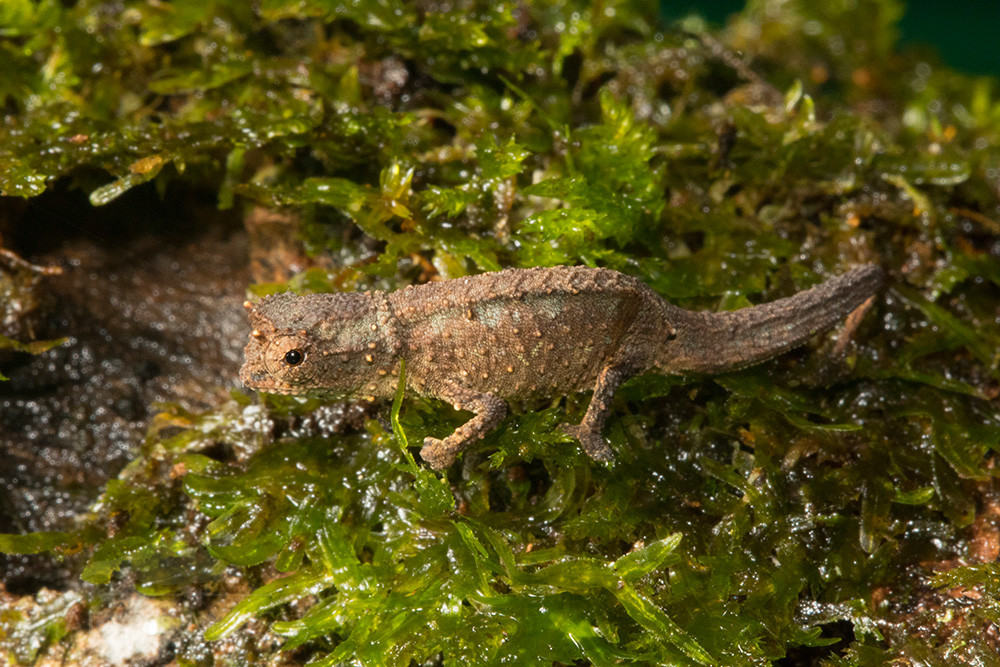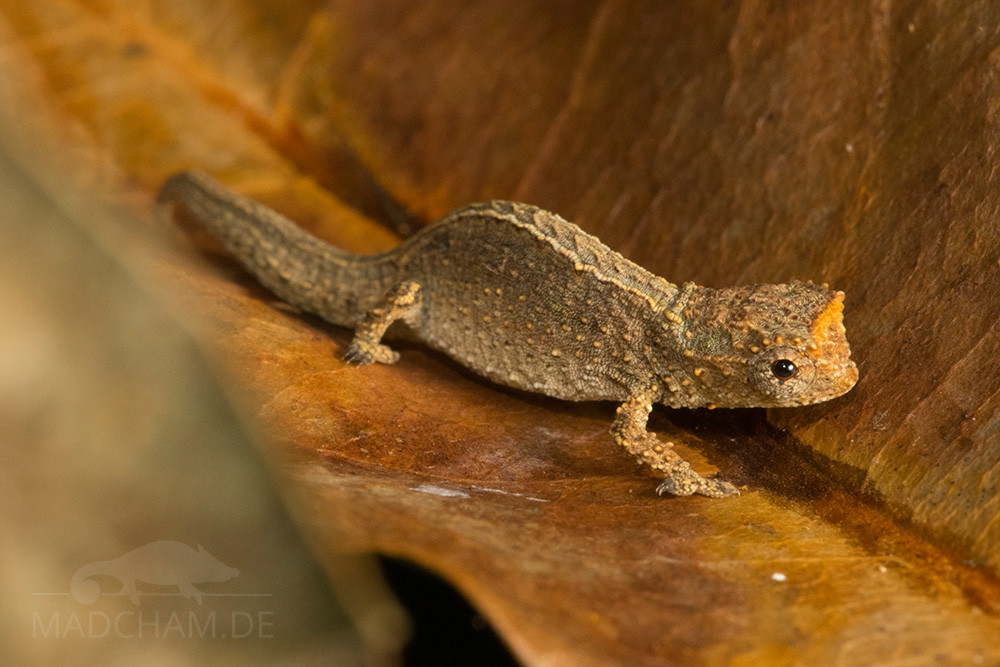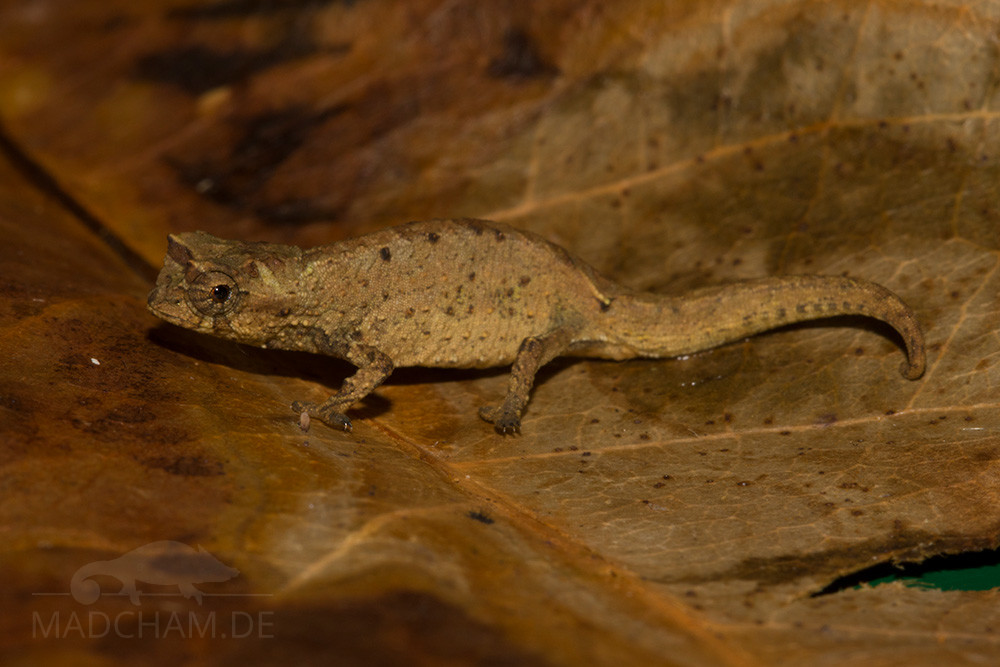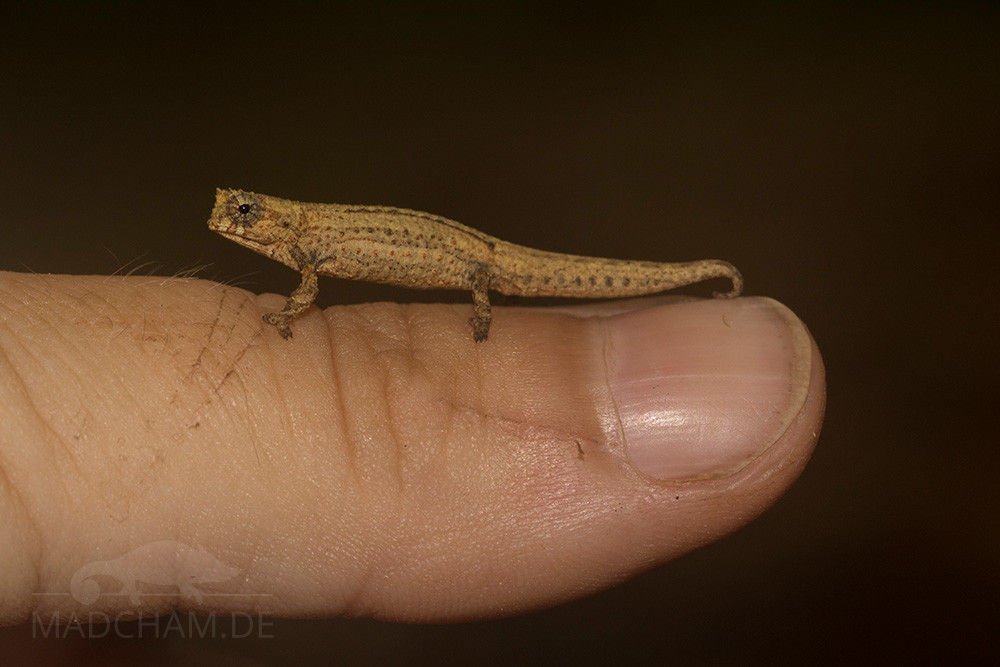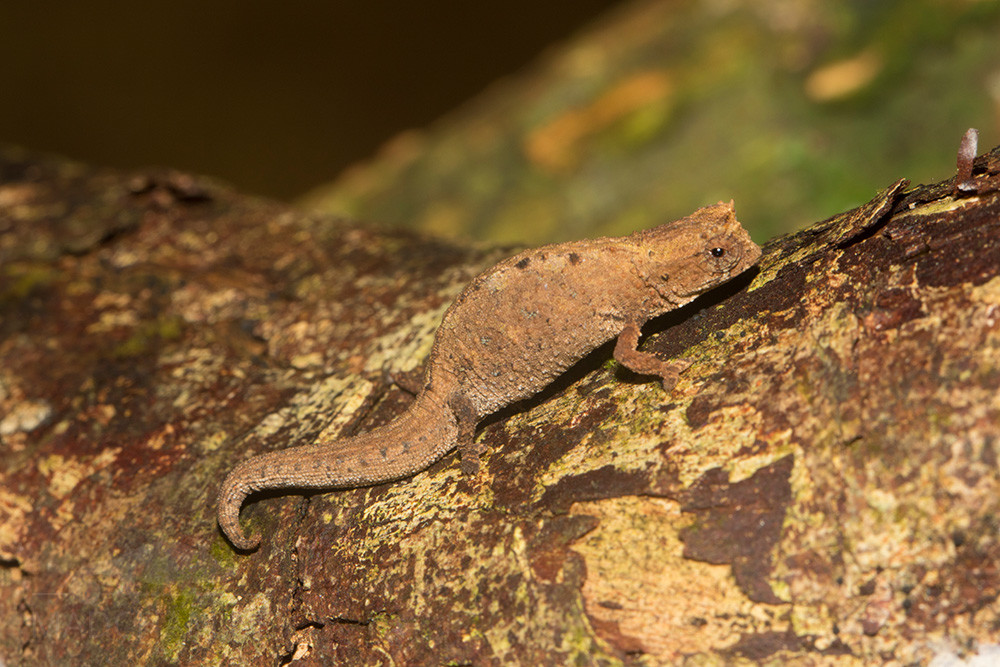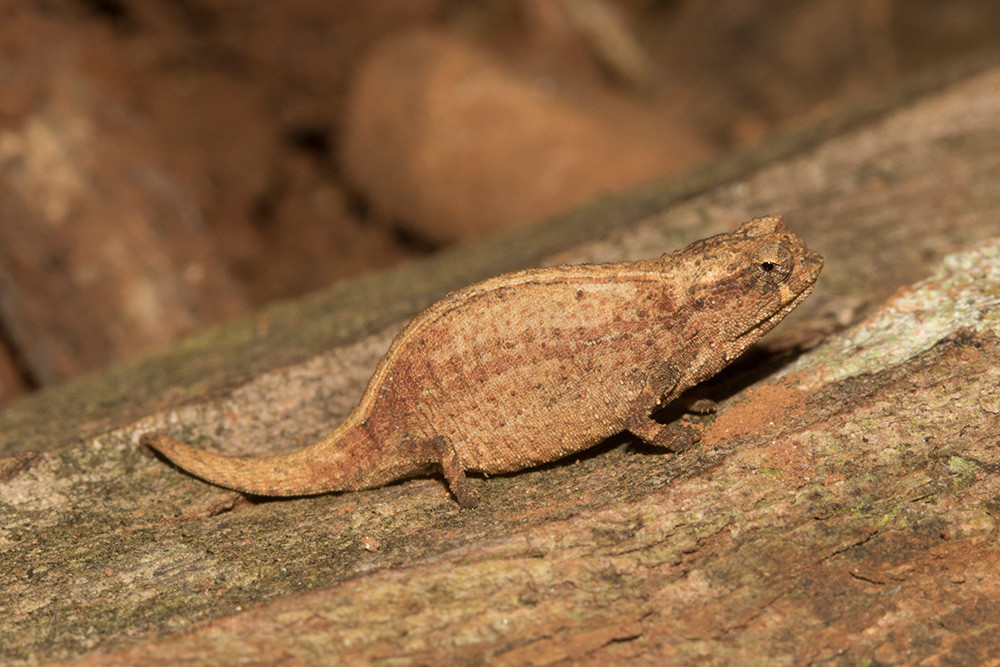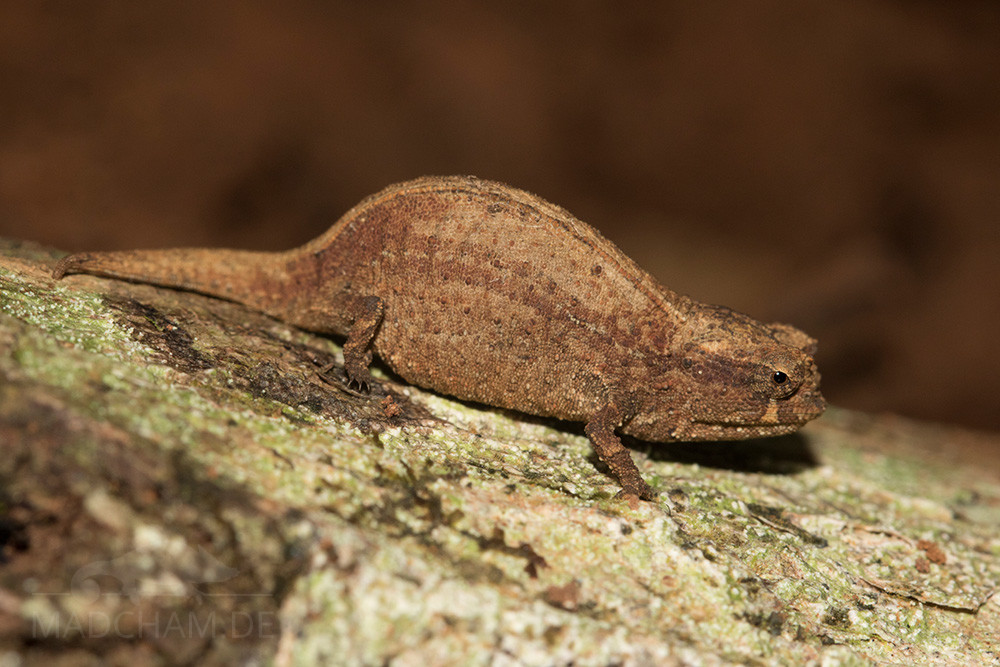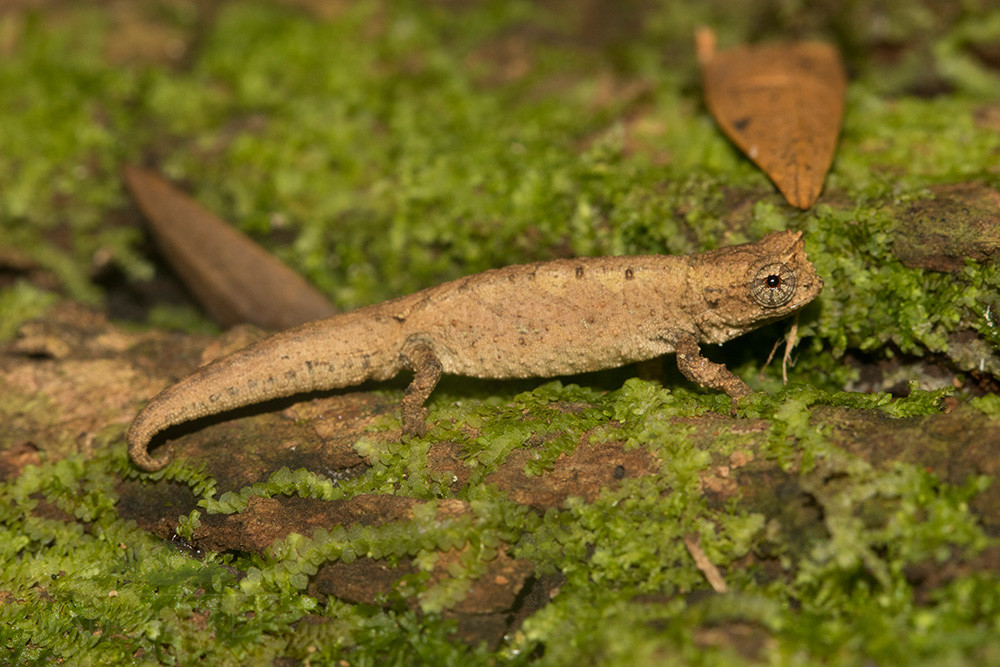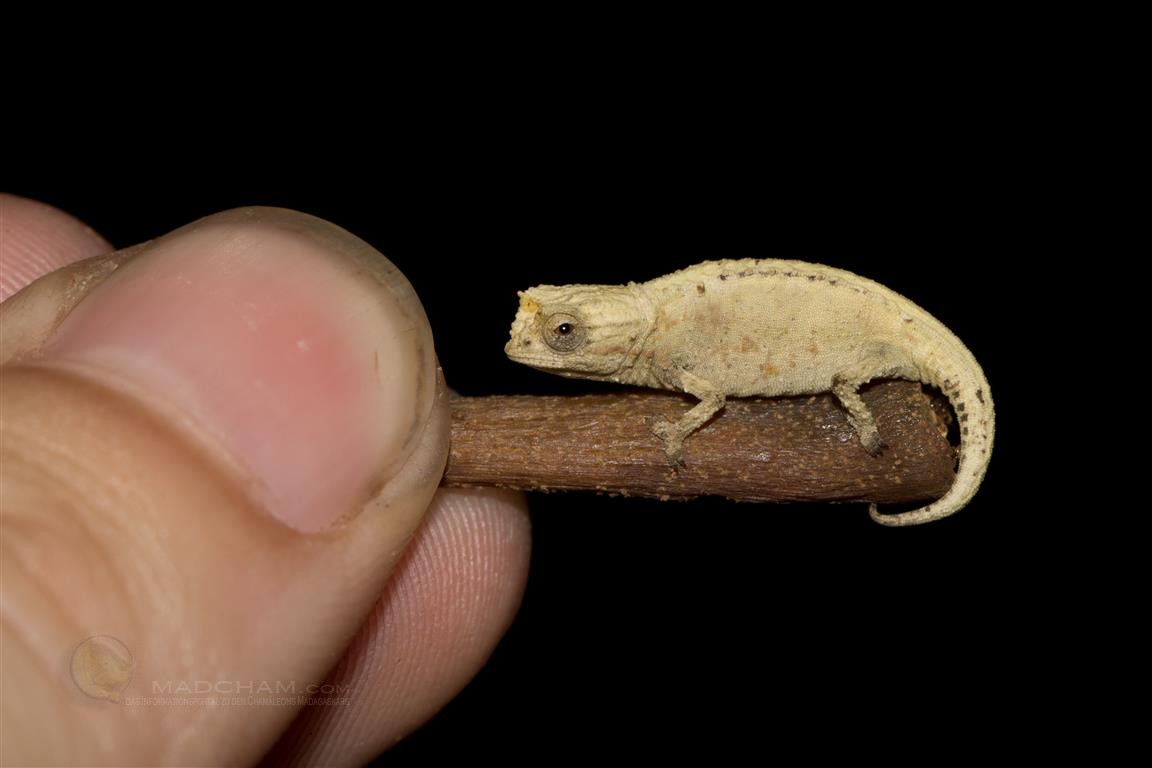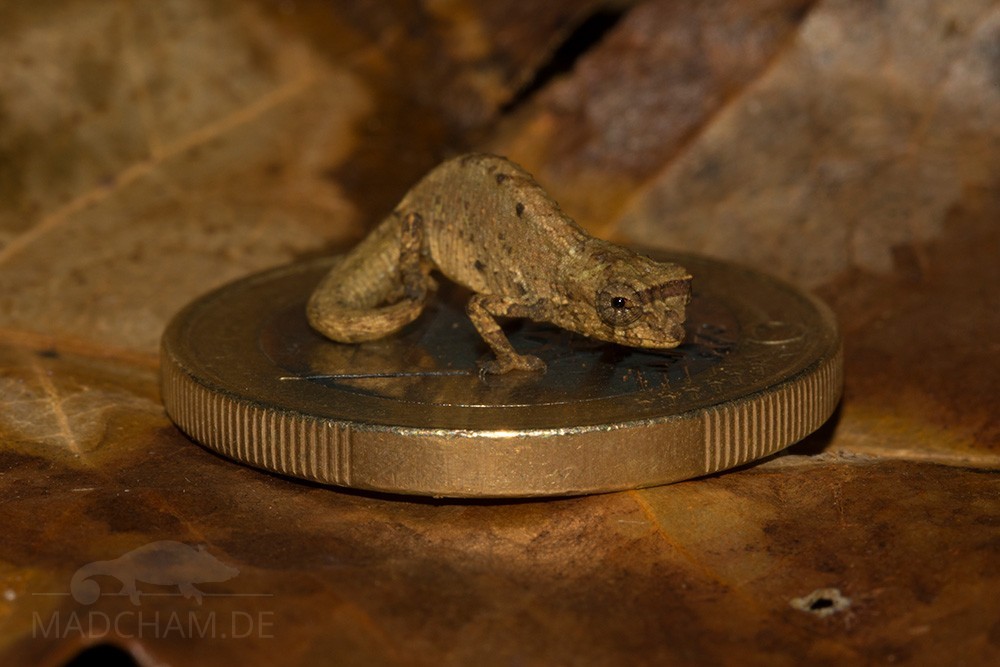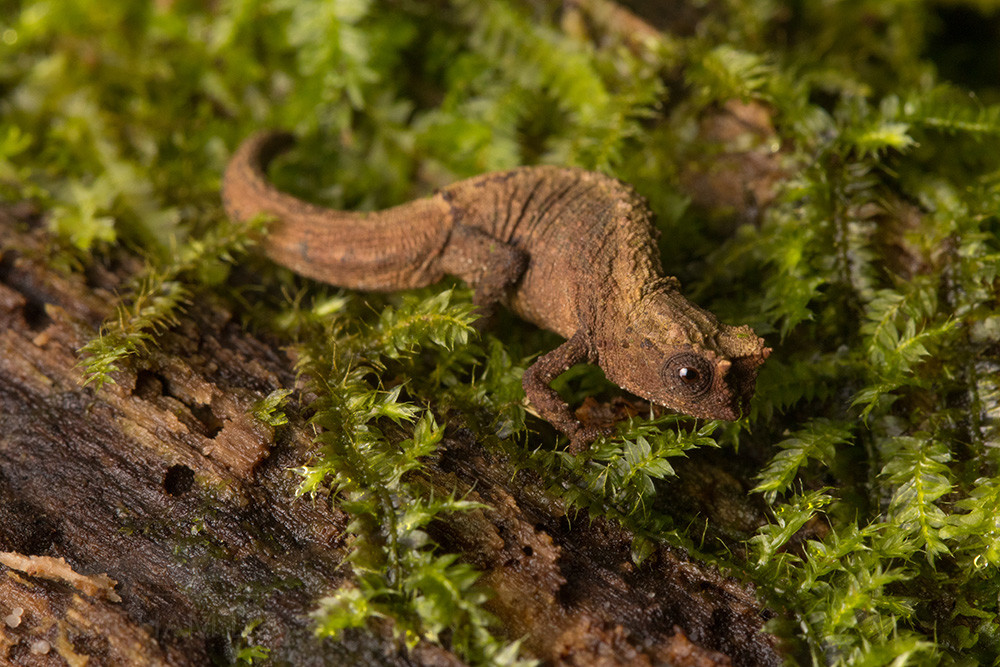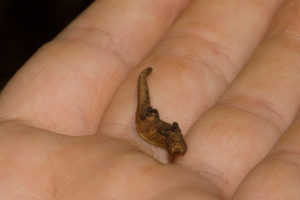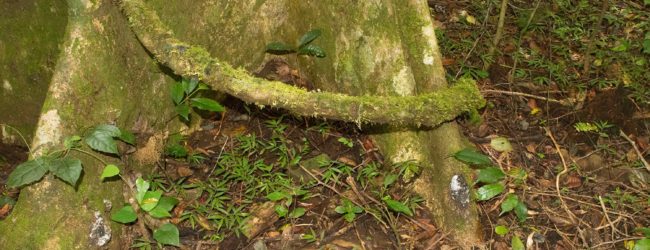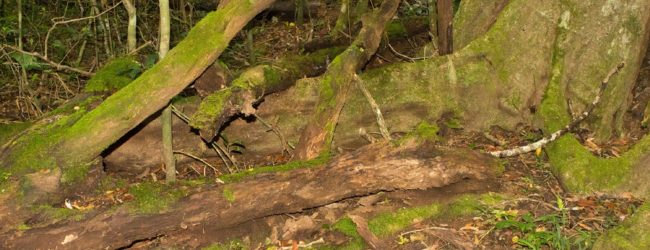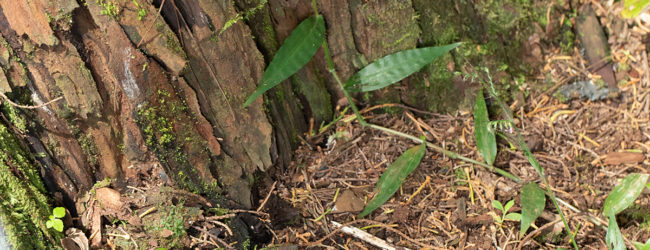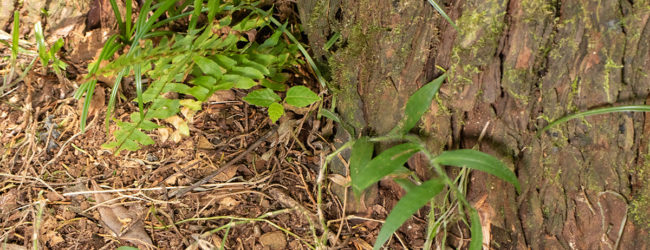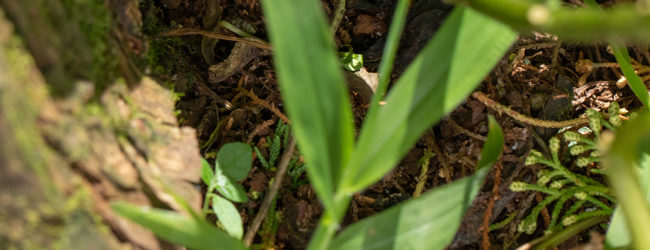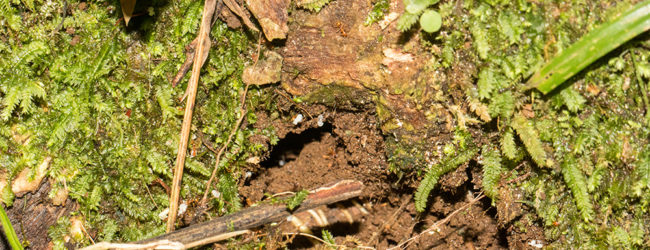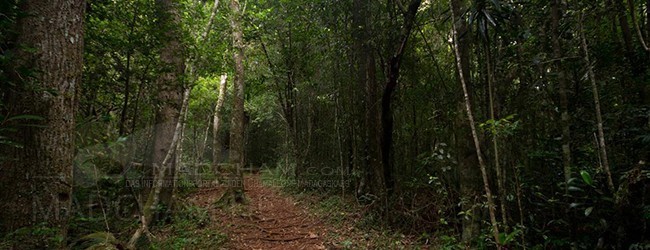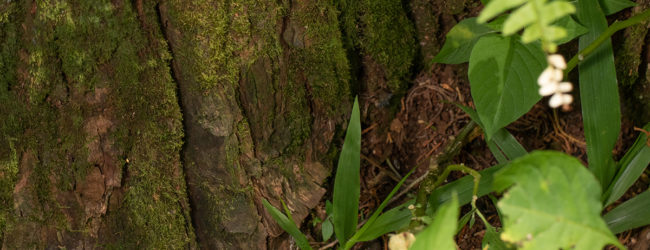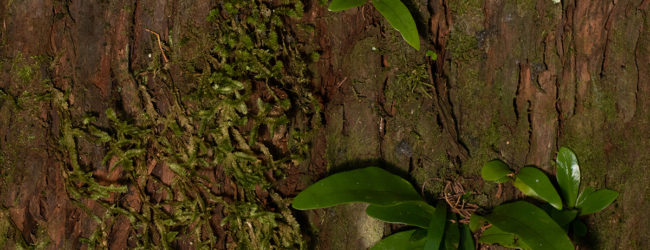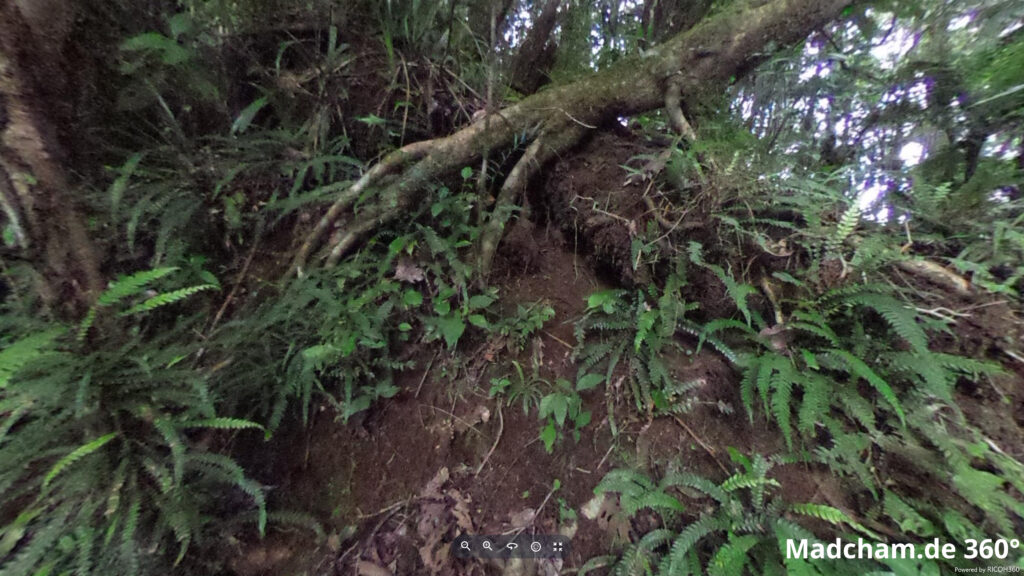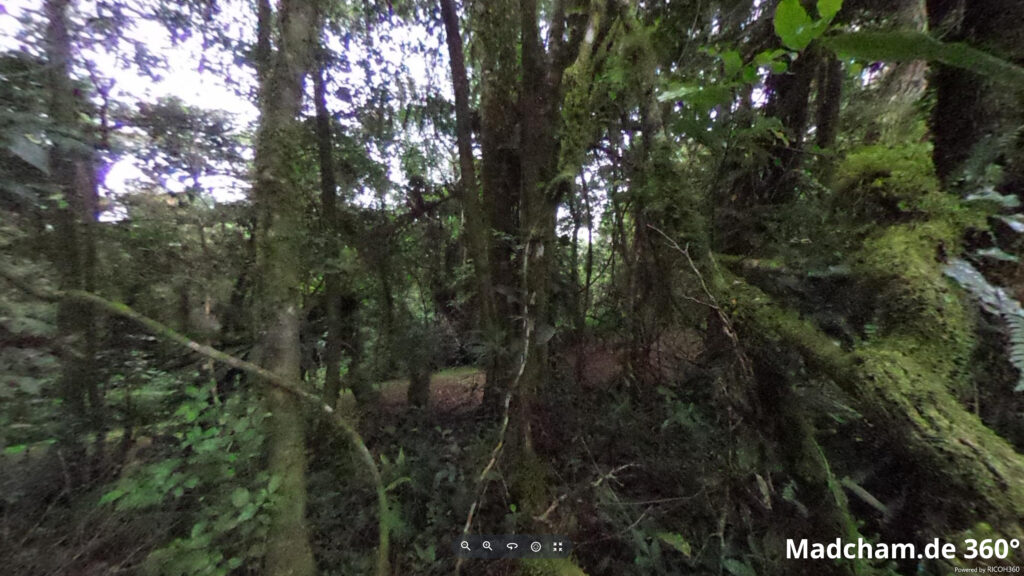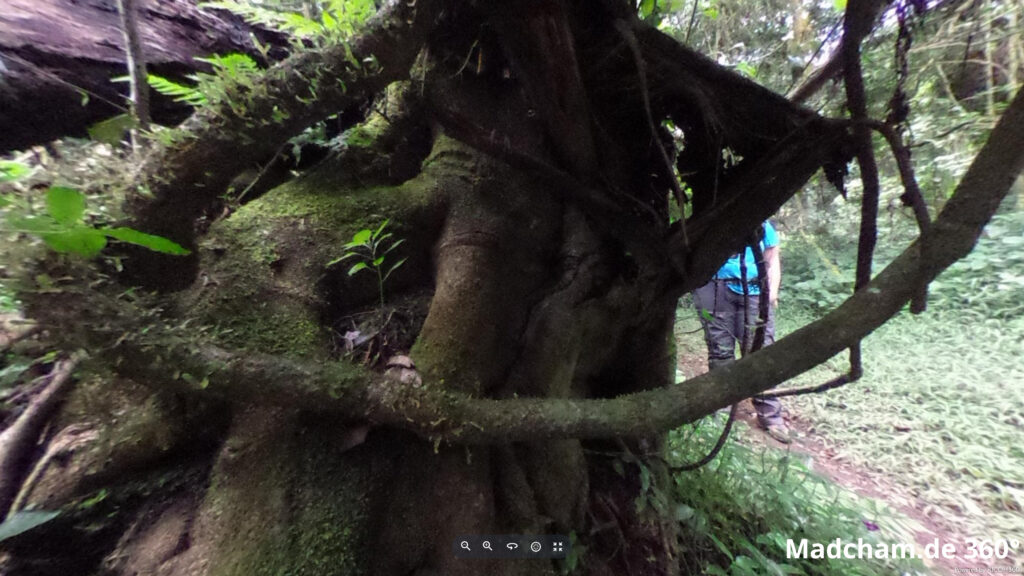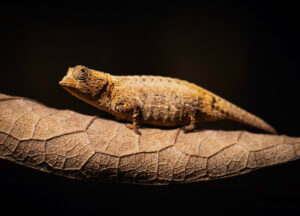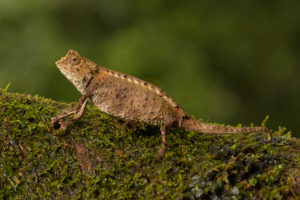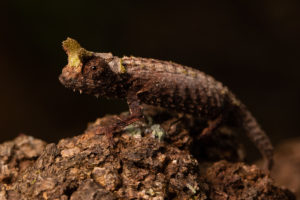no legal export possible
First description:
Origin of the species name:
The zoologist François Mocquard of the Natural History Museum in Paris (France) borrowed the species name from the Latin tubercula, which means “many bumps”. In his description of the species, he considered the small tubercules that this leaf chameleon carries to be species-specific in number and appearance. Mocquard, like some of his colleagues, never visited Madagascar himself but described the species based on prepared chameleons that had been collected from many countries in the Natural History Museum.
Distribution:
These tiny chameleons solely occur in Amber Mountain national park in north Madagascar. Like all leaf chameleons, they live in the foliage, preferably at the foot of huge trees in the rainforest. Elevations are always above 1000 m there. We have been always able to find them not far from the camping ground. Of course, you need some patience to find them. At the end of the rainy season, they often sit on thin branchlets less than 10 cm above the ground. Most habitats we’ve found were the mossy roots of large, old trees.
Appearance & size:
Males reach a total length of 25 to 35 mm, females become a little bigger. The cobby body sits on relatively thick small legs, the body sides wear some indistinct small tubercles. Males have a distinct supraocular cone, which the females lack. Moreover, females are often easy to recognize by their corpulence. Concerning coloration, most Brookesia tuberculata are beige, some blend into brown.
Good to know:
These chameleons belong to the smallest amniotes worldwide, the so-called minima clade.
| Jan | Feb | Mar | Apr | May | Jun | Jul | Aug | Sep | Oct | Nov | Dec | |
| Average temperature | 23 | 23 | 24 | 23 | 22 | 21 | 20 | 20 | 21 | 22 | 23 | 23 |
| Minimum temperature | 19 | 19 | 19 | 19 | 18 | 16 | 15 | 15 | 16 | 17 | 18 | 19 |
| Maximum temperature | 28 | 28 | 28 | 28 | 27 | 26 | 25 | 25 | 26 | 27 | 28 | 28 |
| Rain days | 20 | 20 | 17 | 9 | 6 | 6 | 7 | 6 | 5 | 6 | 7 | 14 |
We have collected the data given above over several years with thermometers and hygrometers at the finding places of the chameleons. "Average temperature" means that values of a whole month have been calculated to one average value per month. For example all measured minimum temperature values of February have been calculated to one average minimum temperature for February. In plain language, this means single peak values of a day may be a little higher or lower than the average minimum and maximum temperatures. It is possible that a location has an average maximum temperature of 29°C, but one day during that month it had 33°C or even 35°C there.
Amber Mountain is an evergreen rainforest which extends over a mountain massif of volcanic origin at elevations between 850 and 1450 m. Due to the height, nights can become rather cold with temperature drops to 10°C.
During rainy season, day temperatures rise to 28°C, in sunny places even warmer. But the average temperature is a little lower. During rainy season, it rains every day for several hours. Simply the way it is in a rainforest. 😉 But also dry season has regular precipitation, just a little shorter. Climate in Amber Mountain is very humid all year long. During dry season, temperatures are somewhat lower with day temperatures up to 25°C.
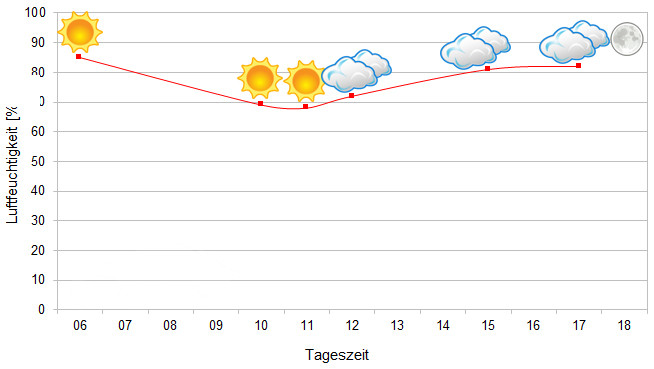
We have measured UVB data with a Solarmeter 6.5 in spring (end of April) at the peak of activity of chameleons in Madagascar. We always measured the values that a chameleon could maximally reach in its habitat.
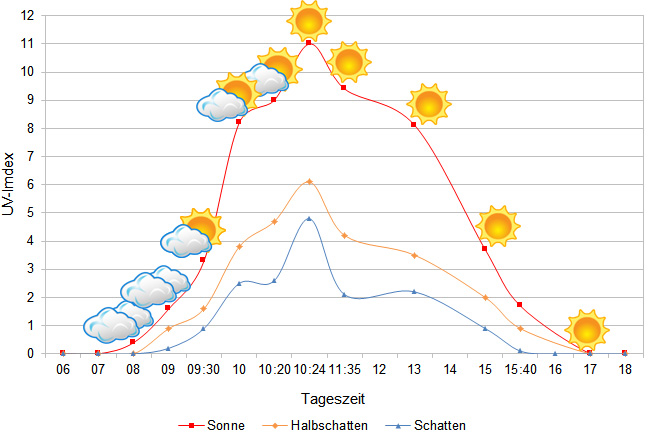
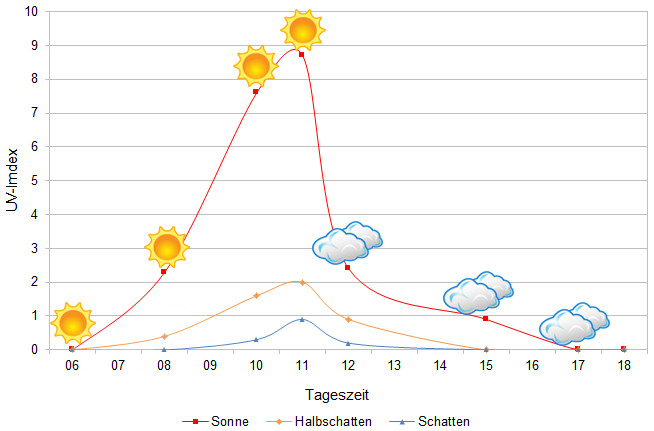
Since 2022, in addition to other climate data, we have also been measuring air pressure at the locations we visit in Madagascar. The following data is from a day during the rainy season. On the X-axis is the time of day or night. In Madagascar, the day begins around 6 am, and night falls as early as 6 pm. The Y-axis shows the atmospheric pressure in hPa.
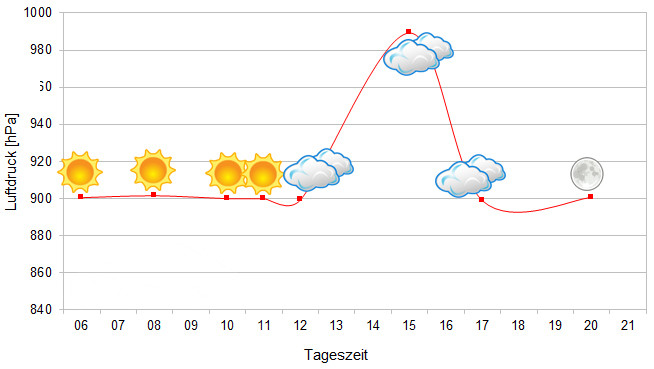
Habitat:
The following pictures show the habitat of Brookesia tuberculata in Amber Mountain. Some are even from finding places of this species. These small leaf chameleons prefer to live at the feet of huge trees between roots and in small bark protrusions where moss and leaves rest. You can also find them close to some fallen tree trunks in the dense foliage.
Below you will find some 360° images of the Amber Mountain rainforest that we took during the rainy season. If you click on the respective image, the pictures will open in an enlarged view in a separate window. You can use the mouse to rotate in all directions. You also have the option of running the images in full-screen mode. Have fun looking at them!

